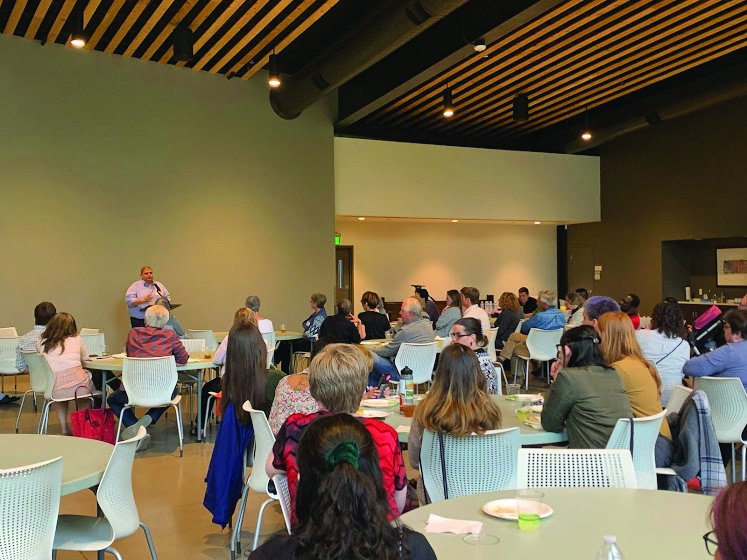University of Iowa Health Care to purchase Cedar Rapids medical office
Annie Smith Barkalow

IWN Board Member Horacio Borgen presented to 60 attendees at the IWN’s celebratory kickoff event on June 11. He was a political exile from Nicaragua and immigrated to Iowa two years ago. CREDIT ELEANOR HILDEBRANDT.
When Mazahir Salih immigrated to the U.S. from Sudan in 1997, she had a million questions and nowhere to go for the answers.
After more than 25 years in the U.S., Ms. Salih knows she is not alone in this experience. To rectify the issues she knows all too well, she and seven other Johnson County residents have begun the Immigrant Welcome Network of Johnson…

Get immediate, unlimited access to all subscriber content and much more.
Learn more in our subscriber FAQ.
Do you want to read and share this article without a paywall?
